Introduction
If there is one thing I learned while living in the city of Philadelphia: do not underestimate how much sports mean to its residents. In my time here I have experienced great wins, great losses, second round exits (more than I can count), exciting moments, painful moments, but above all I have learned what it is like to be part of a sports community that is so passionate about its teams. As a Portuguese moving to Philly when I was 16, I can confidently say it was a big cultural shock. In both Philadelphia and Lisbon (my hometown), there is a very big sports culture, as the two cities have great tradition and history in sports. Portugal, along with the majority of other European countries, is a soccer country. This does not mean that there are no other sports there, but soccer is by far the most popular and impactful. Here in the United States, there are obviously the four major leagues, comprised of football, basketball, baseball and hockey. Despite the differences in the sports themselves, I consider that the fan bases and their passion are surprisingly similar. This article will talk about my personal experiences and sports stories, highlighting the characteristics of sports fandom in each city, while also exploring what the differences and similarities between the cities approach to sports say about the culture. At the core the fanbases are remarkably similar in their passion, even though sometimes at the eye there are clear differences.
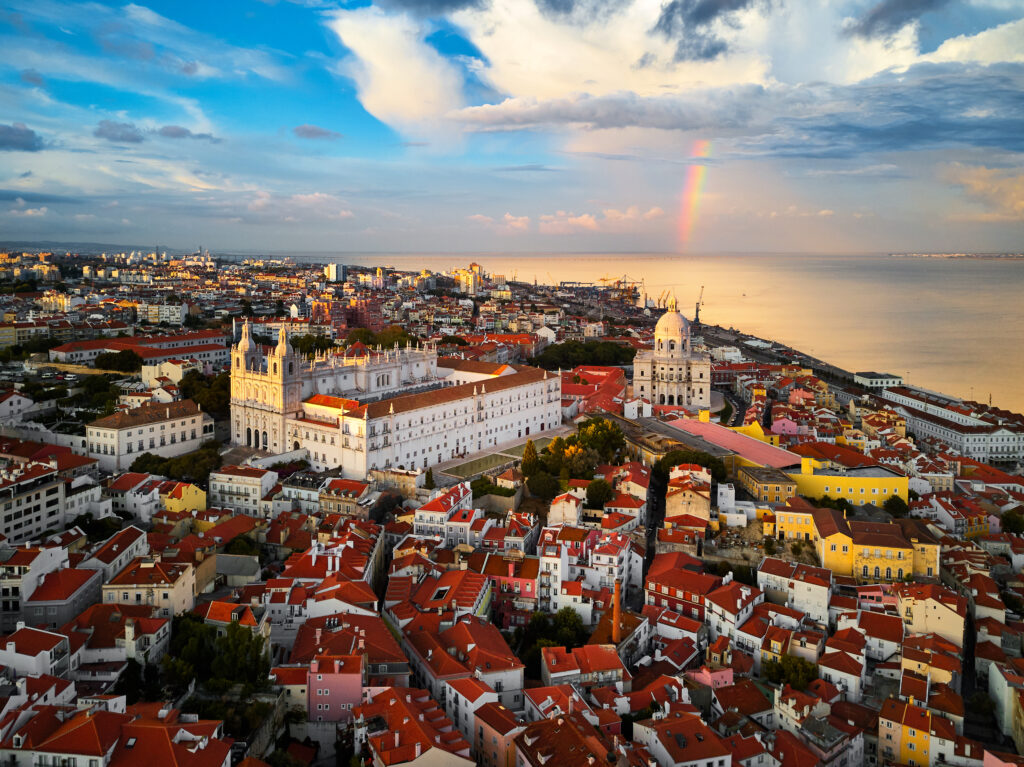

This is not an observation based on a study or anything like that, but if I had to guess, I would say the most talked about topic in Portugal is soccer. Politics are up there for sure, but literally anyone, from a five-year-old to a ninety-year-old will talk about soccer for hours. It holds a significant place in Portuguese culture, from the bustling streets to family gatherings, it’s more than just a game: it’s a cultural phenomenon that is part of our national identity. Whether it’s a local match or an international tournament, the excitement and the passion surrounding soccer will always be present. According to an article that gives an overview of soccer history in Portugal, “The (…) government launched a propaganda campaign and placed soccer within the trinity of the three Fs: Fátima, Fado and Futebol, symbols of Portuguese values.” This means that soccer is ranked as high as religion and fado (the most iconic and symbolic Portuguese music genre), when it comes to its importance for the Portuguese people, and I couldn’t agree more.

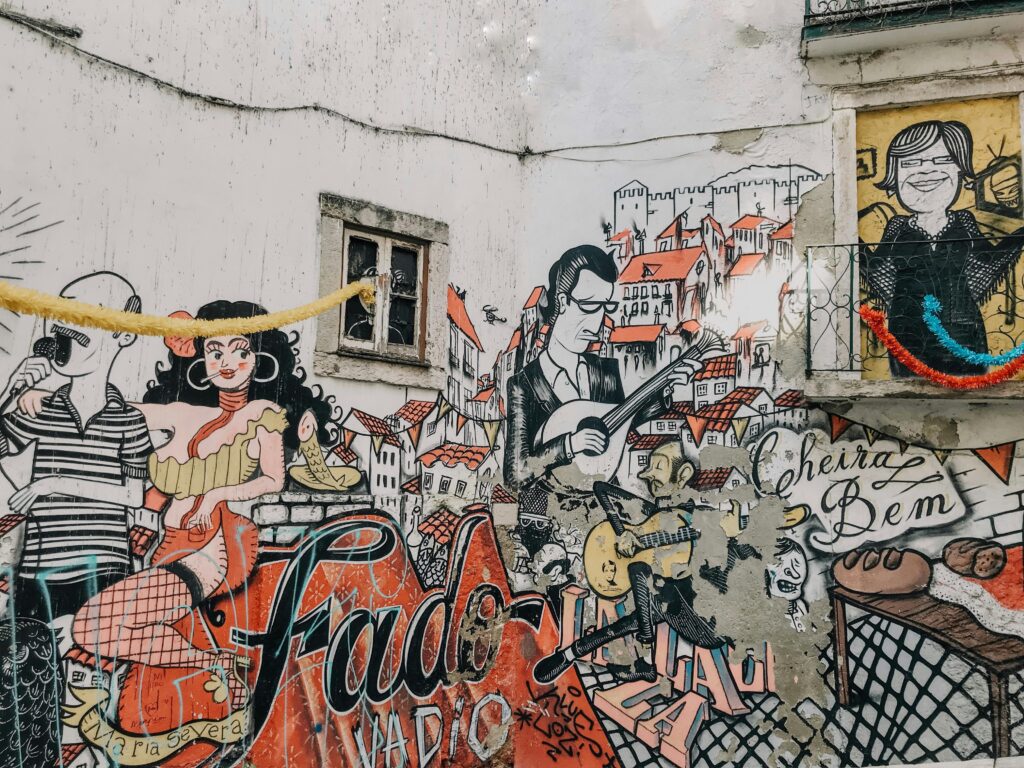
Being born in Lisbon is like flipping a coin when it comes to which team you are a fan of. There is a fifty percent chance you are a Benfica (Sport Lisboa e Benfica) fan and a fifty percent chance you are a Sporting (Sporting Clube de Portugal) fan. My family is proof of that, we are evenly split because there are fans of both teams. I am a proud Sporting fan, just like my father and my grandfather, who are the people responsible for this unconditional love I have for sports. But being a Sporting fan is extremely tough, and throughout the years me and the rest of the fans have experienced a great deal of misery and disappointment. Among the miserable events we went through, there is the obvious one, which was not winning the Portuguese championship for more than 19 years, but also actually bad and horrifying stuff such as a group of 50 so called “fans” invading the team’s locker room and (literally) beating the players and staff. Through the trials and tribulations though, I have remained a loyal fan. And the truth is that, despite some bad experiences, there have also been plenty of good moments, and memories I still cherish today. Something simple like going to a game with my dad, singing the Sporting anthem before the beginning of a match, or even just going to a championship parade after we won the Portuguese Cup in 2015, these are only a few of the moments that truly make me proud to be a fan of that team.
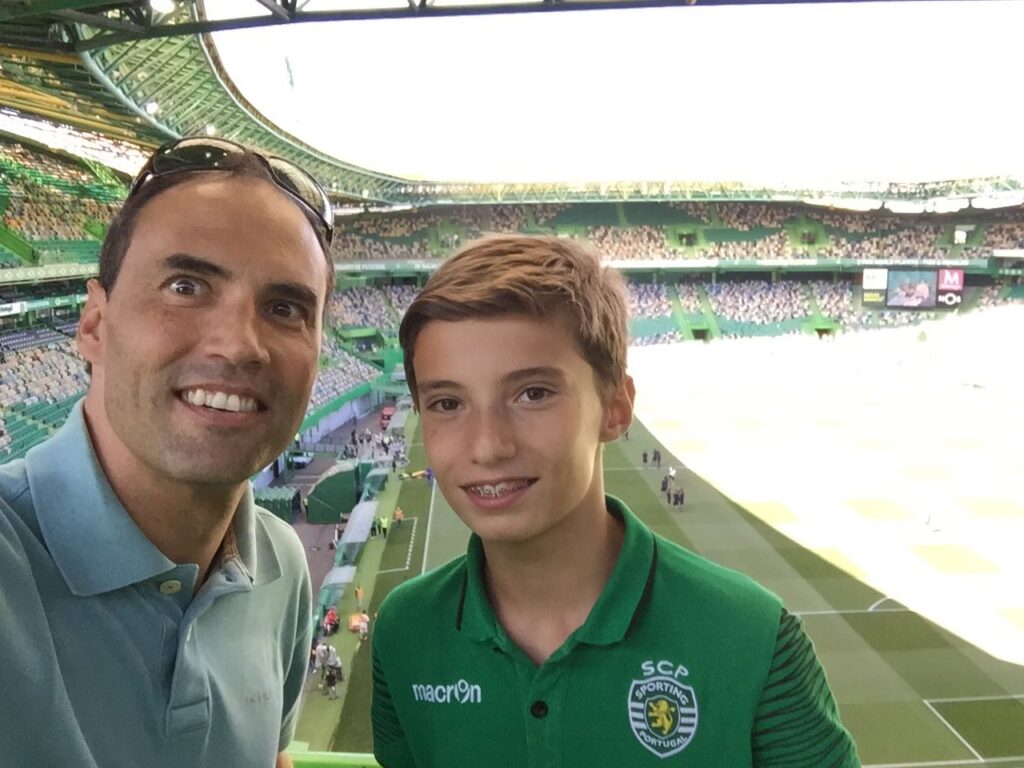
In August 2020, a big change was on its way for me and my family. My father is a longtime navy officer, and when he got a job proposal to be stationed in Philadelphia, he did not hesitate, as he knew it was an amazing opportunity for the family. His job in Philly was not only much better paid, but also it had always been a big dream for him to live in “the land of opportunity”. The only downside was the fact that it was covid year, so it made the adaptation a lot harder for us. But, at least for me, that was when American sports came in and played a major role in my life.
Sports teams like the Eagles, Sixers, Phillies, and Flyers are a big part of life in Philadelphia. They’re like symbols that bring people together and make them proud to be from the city. People wear team jerseys all the time, celebrate in the streets, and talk about the game for days. This loyalty and love for sports shapes the way people in Philadelphia live and interact with each other every day. Something small like going to the supermarket on NFL Sunday makes one realize the power of sports in this town: it is truly difficult to find a person not dressed in Eagles gear, and at certain supermarkets they even offer discounts if you have your Eagles jersey on! This is the type of thing you can only see in America.
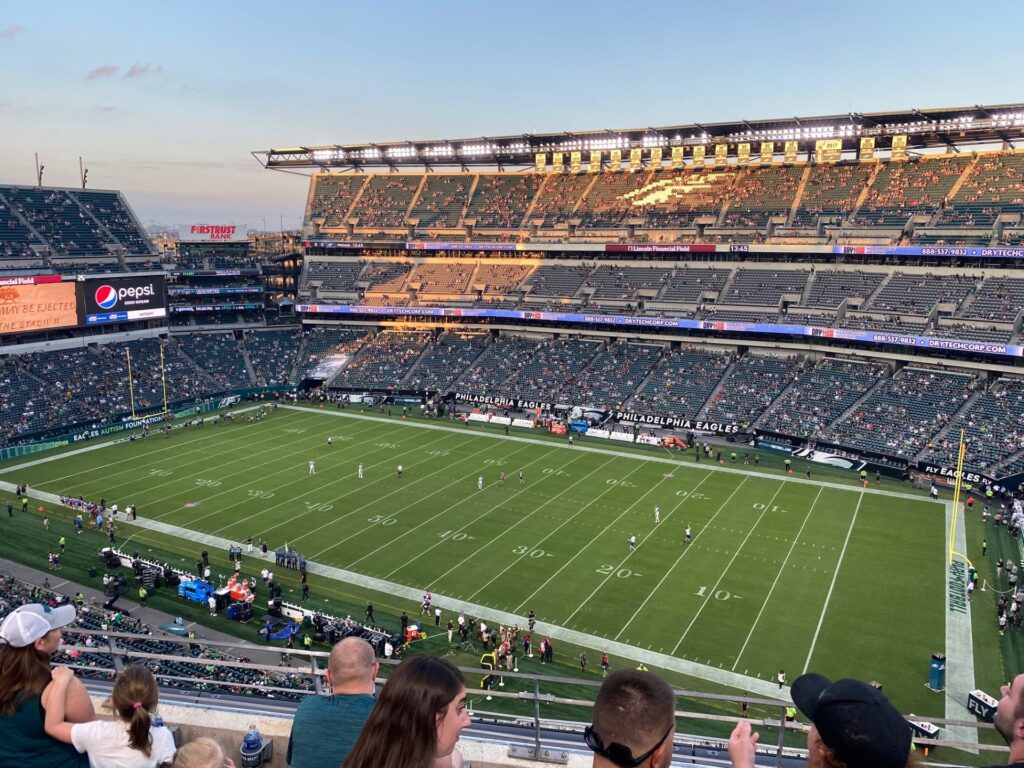
For me it was tough in the beginning. My journey here in the city has had its highs and lows, and the start of it was very rough because of the pandemic. Not knowing anybody here and not even having the opportunity to go outside and make friends, that definitely impacted my mental health and my well-being as a person. I needed to seek some kind of refuge in something, and so I quickly started connecting with American sports.

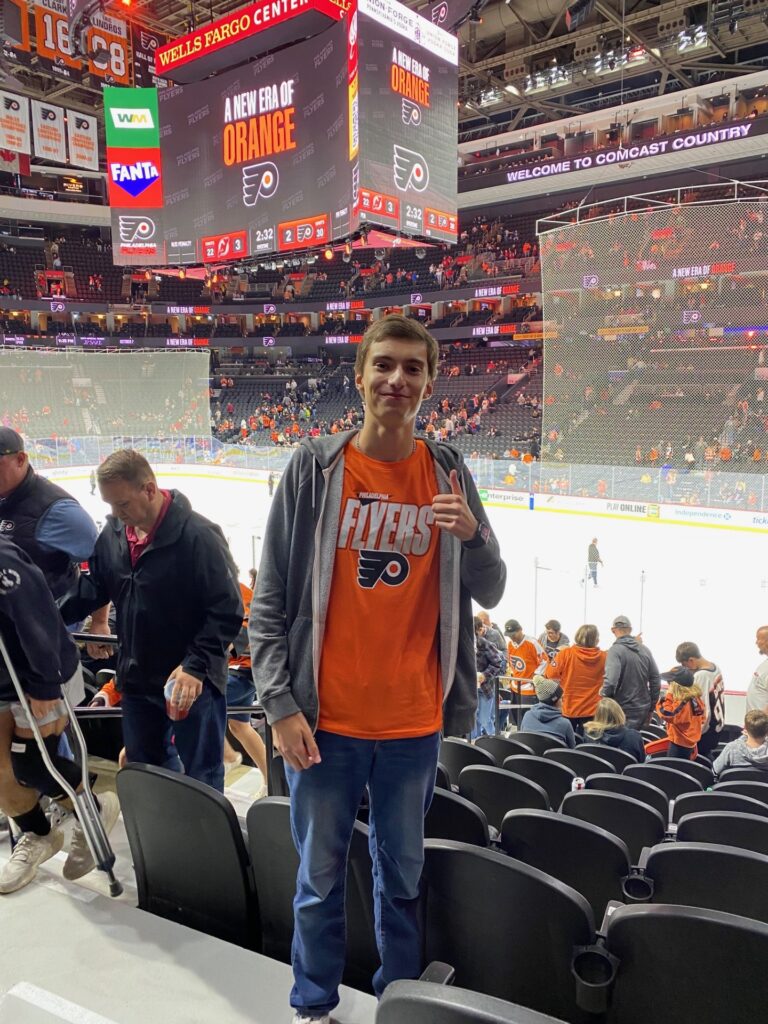
As I got deeper into the world of Philadelphia sports, I found similarities with the amazing passion that I knew back home in Lisbon. While the sports themselves might differ, many other aspects such as gameday experiences and the passionate fanbases have incredible similarities between the two.
Gamedays in Philadelphia are lively and energetic (sometimes, even a bit too much), and so are gamedays in Lisbon. The day usually starts pretty early for the fans here. Back home though, the concept of “tailgating” doesn’t really exist. While in Philadelphia you set up your tailgating tables with food and drink, along with a couple of fun games that you can play with fellow fans, in Lisbon people just walk around the stadium to hang out and eat (the last one being the most important, obviously…). A gameday “bifana” is something sacred to the Portuguese people, I myself could use one right about now. The “bifana” is basically a very simple pork steak sandwich. It is usually seasoned with garlic and spices, then put inside a bread roll. If I may give an extra tip, put a little bit of mustard inside, because it mixes with the steak really well. It sounds incredibly simple and straight-forward, but words cannot describe how good it actually is to eat one of these before the start of a game. You can easily compare a “bifana” to a Philly cheesesteak, with one (big) exception being the price. In my opinion, they seriously need to decrease the food costs in sports venues, not only in Philadelphia, but in the whole country.
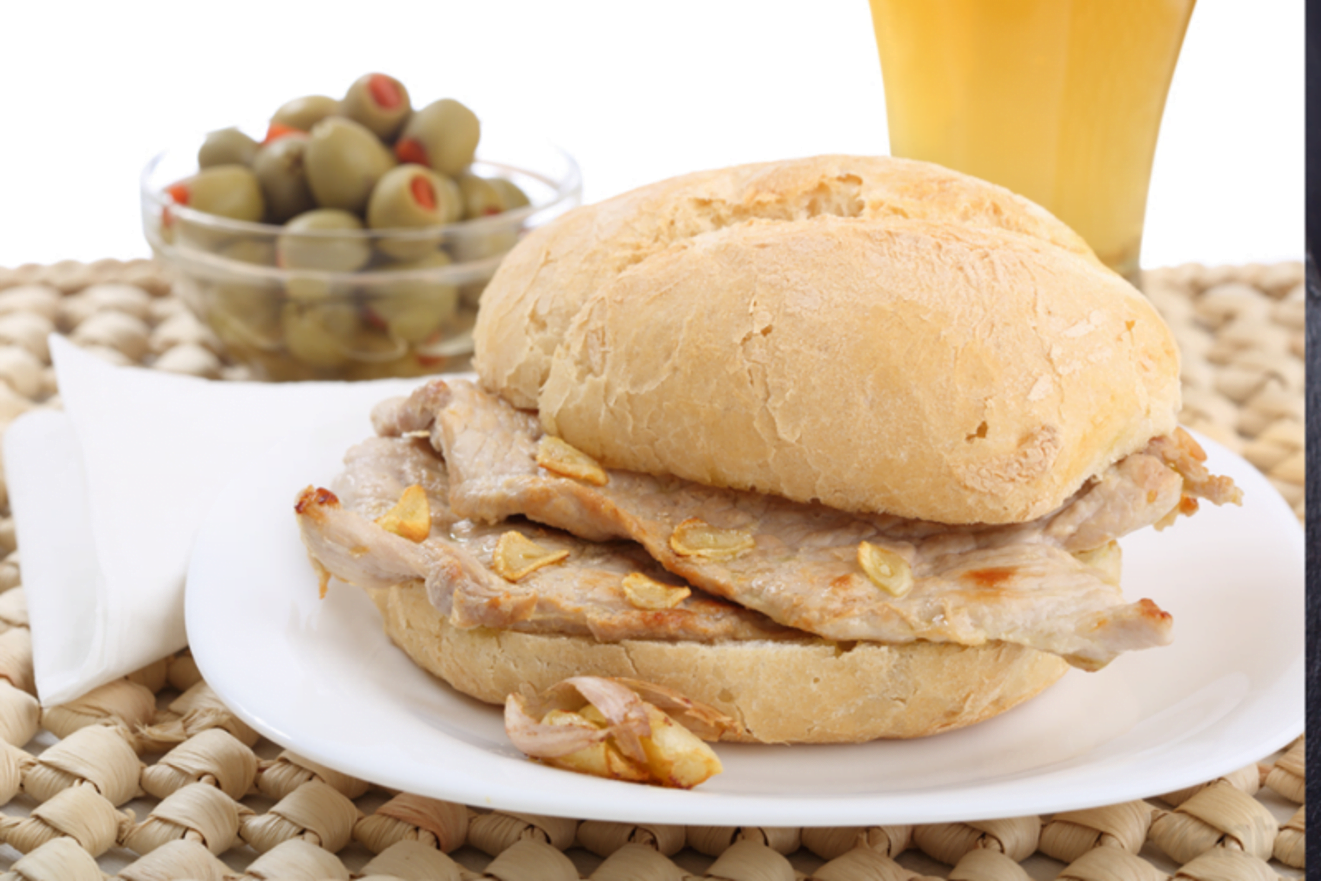
So, despite the big difference in preferred sports, both countries share a deep passion for athletics and sports culture. Whether it’s a weekend pickup game or a professional match, sports play a significant role in the lives of many people in both the United States and Portugal. In Lisbon the fans are rowdier, and you’ll never see them not chanting or cheering during a game, that’s almost unthinkable. Here, you go to a Sixers or Phillies game and the fact is that most people will just be sitting there in quiet, watching the game in peace, eating a snack and drinking beer. Looking at the way the fans act, anyone would think people here have no passion about sports, which is not true. After moving here, I can confidently say the passion is the exact same, despite not looking like it. When considering the cultural aspect, sports in both countries have such a great impact in community engagement, that it is truly hard to be indifferent to them.
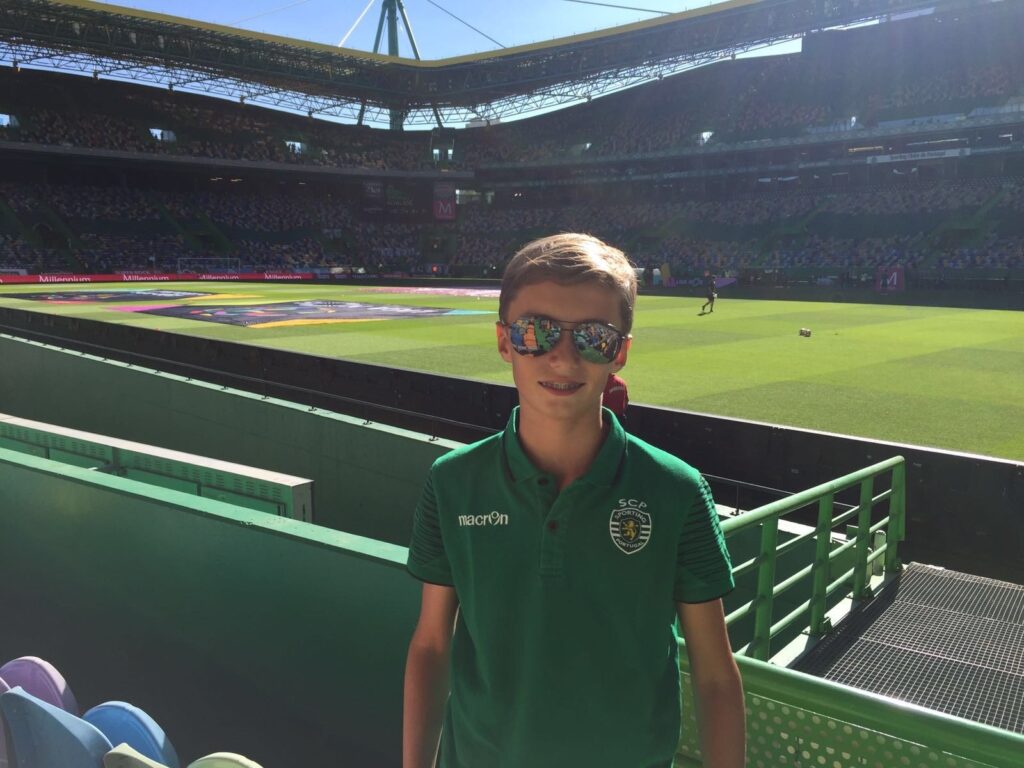

Conclusion
Cheering for the Eagles or talking about the Sixers with new friends made me feel connected, like I actually belonged here. Looking back, I see how sports helped me navigate the challenges of moving and find a sense of community in Philadelphia. It’s simply amazing to me how something as simple as a game can bring people together and make a place feel like home. Perhaps if I didn’t find as many similarities as I did to sports in my hometown, my adaptation would’ve never been as easy as it was. The truth is that the cultural identity of these two cities relies heavily on sports. It’s the community engagement, the ride-or-die fanbases, but most importantly – the values of resilience, determination and passion, that ultimately made me fall in love with sports in Lisbon and Philadelphia, the two cities that I will always love.